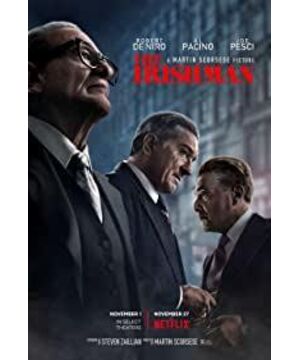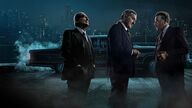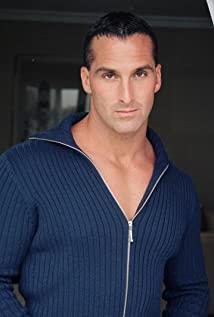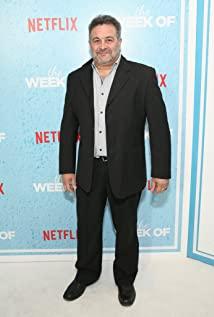three questions
Jimmy: YOU PEOPLE. Who are you referring to?
Russell: FUCK THEM! FUCK THEM! FUCK THEM! Who are you calling?
The lack of initiative of the protagonist is true, it seems to be flawed, but what if the protagonist wanted to tell the story of the puppet from the beginning?
character setting
Frank, World War II veteran, low emotional intelligence, decisive, military trained with high obedience, a pawn of a chess piece.
Russell, a gangster, with high emotional intelligence, gentle on the surface, not angry and self-righteous, a bridge connecting black and white, a chess piece.
Jimmy Hoffa, guild leader, very charismatic, self-made, likes to control, has a bottom line, and refuses to be manipulated.
Contrary to the usual setting of screenwriting, "The Irishman" reduces the subjective initiative of the protagonist to a minimum. Although it is narrated from a first-person perspective, Frank's motives are almost completely determined by himself, and it is completely a puppet thug. Russell seems to be at every step and can solve problems for everyone, but his decision-making is also not controlled by subjective will, and he is also just an executor who receives instructions. Russell's passivity is shown many times in the film, in the form of direct dialogue and innuendo, and is emphasized by three consecutive "FUCK THEM!" points in the elderly prison scene. A dog and horse all his life, he is so old that he can't escape the end of the rabbit's death and the dog's cooking.
On the contrary, the "supporting role" Jimmy, who was killed very early, did not waste his life. He knows what he wants, strives for it, defends it to the death, is out of control, and is not afraid of threats. Based on this, he can treat people with sincerity, and the division between friends and enemies is clear. Even if he is killed because he trusts his friends, his life is truly a protagonist among the three. On a subjective level, the preference for this character also stems from Pacino. His performance endows Jimmy with magic, which makes me, like Peggy in the play, star-eyed when I see him, and Mimi laughs.
story structure
Linear narrative, connecting characters' life events through road journeys, the rhythm is slow but smooth and powerful. The main line + interlude is adopted, the whole is neat, the events are progressive, the evil starts from theft, to deliberate destruction, then to murder, then to kill more people, then murder the friend who trusts you the most, and finally kill and participate Murder accomplice. The killing doesn't stop at Jimmy, quite advanced handling techniques, endless suspicion and continuous sitting are more frightening than killing a Jimmy, because it has infinite continuity.
content of the story
In a satirical tone throughout the film, the self-destructor's intentions are told: "They thought that as long as they worked hard and obediently, they wouldn't kill them." The same situation happened to Frank and Russell.
The following analogies cut across geographies and genres, but the similarities at the thematic level are worth mentioning.
Just like Ruyi's Royal Love in the Palace, it talks about the love of the feudal emperor's family throughout, and the argument concludes that the love of the emperor is impossible. "The Irishman", throughout the story about the way gangsters manipulate society, argues that the gangster model is difficult to end. Both films are very objective and do not use a critical attitude to tell the story, but just telling the story calmly and soothingly is enough to illuminate the author's attitude and speak loudly—that is, the main object of their in-depth discussion is not valid.
In the end, while the protagonist is completely devoid of agency, it is its importance that The Irishman tells the most. This film, which has a lot of blank space, may become another classic case of citing Eastern philosophy in the creation of Western dramas.
Acting music screen shot
No idea, just kneel.
View more about The Irishman reviews











